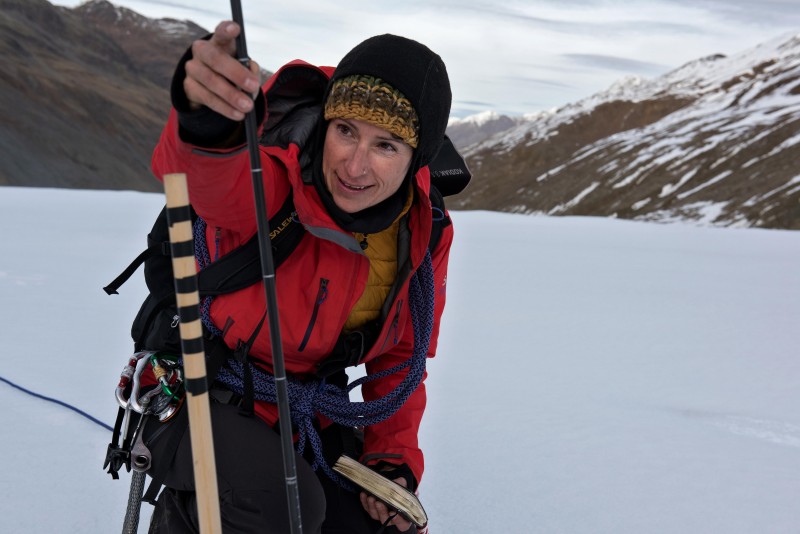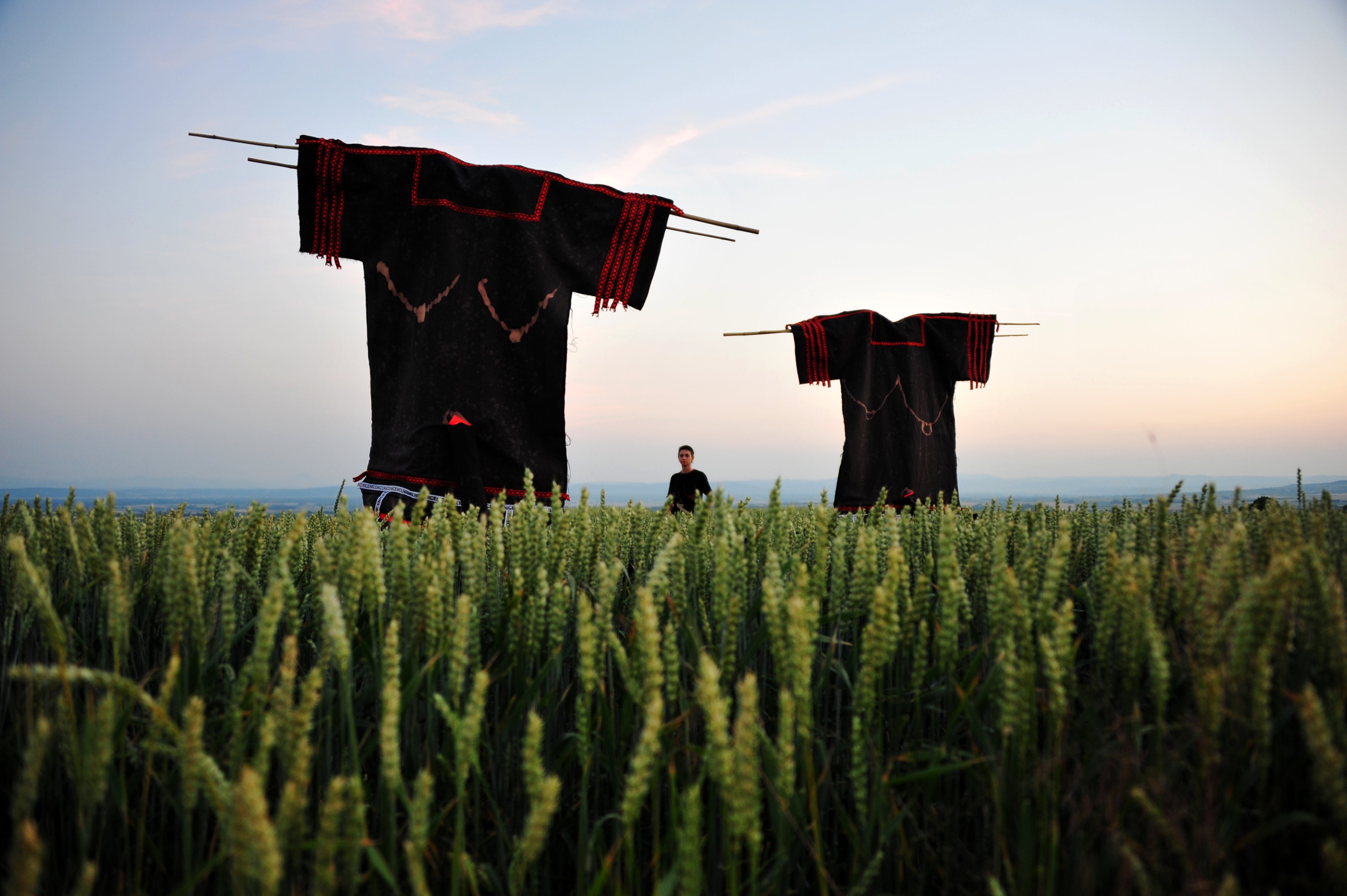News Details

The ClimArtLab project Evolving Futures: Owning our Mess is a highly experimental space for scientists, artists, and philosophers to create art interventions that can induce behavioral change.
In the kickoff meeting on the 26th of February, organizers Guido Caniglia (KLI) and Dominika Glogowski (artEC/Oindustry think tank) invited Julia Bentz of Art-for-Adaptation to present a keynote lecture on her project to participants of Evolving Futures. The participants of the project include artists Francesca Aldegani and Ida-Marie Corell, climate scientist Lindsey Nicholson, and KLI fellow Alejandro Villanueva Hernández, a musicologist who is also a musician. KLI fellow Luana Poliseli will conduct studies on the project by collecting data on the collaboration process. Her work will help address how working together will change participants' ideas about “solutions” to climate change.
.jpeg)
Zoom meeting on Feb 26
How did ClimArtLab come about? Wicked problems, such as climate change, are immersed in complex networks of tensions and contradictions such as local and global interconnectedness and dependencies, which make decision-making processes challenging. That is why multidimensional approaches are needed for steering behavioral and cultural change at the individual and societal level. Since art-science collaborations are increasingly tapped into as they can animate the articulation of environmental, social and cultural values, create visions, and mobilize embodied experiences to address climate change (e.g. Bentz, 2020; Galafassi et al., 2018), the organizers believe that the arts in collaboration with science, can generate motivation for individual and collective change.
Who are the participants?
Francesca Aldegani is an artist based in Vienna. "The Scarecrow Sisters" (below) is part of her ongoing work exploring "the meaning of Animism, the Morphic, & the Unified Field."
IG https://instagram.com/thespacearound
Lindsey Nicholson is a climate scientist also interested in the power of the arts. As stated on her website: "As the scientific understanding becomes deeper, simplistic solutions seem less realistic and there is an increasing need to engage many interest groups to respond in the best possible way."

Lindsey Nicholson

KLI fellow Luis Alejandro Villanueva Hernández works on material culture evolution, cognitive ethnomusicology, cognitive archaeology, embodied music cognition & more! An active musician, he plays traditional musical instruments from Mexico & South America.

Finally, KLI fellow Luana Poliseli will be collecting data on #ClimArtLab to see how our ideas about solutions to climate change might change in the course of our interdisciplinary collaborations.
What are the aims and questions? In Evolving Futures: Owning our Mess, the focus is on the role of art-science collaborations and the way they can support agency and motivation while capitalizing on Water-Energy-Food nexus approach to frame the connection between behavior and climate change.
Most approaches in the behavioral and social sciences that deal with behavioral change rely on a nudging paradigm focusing on choice architecture and on influencing the behavior of groups and individuals. In Evolving Futures, we want to explore approaches to behavioral change in relation to climate change that go beyond nudging.
We aim to find ways to generate intrinsic motivation and agency for climate awareness and behavioral change while also relying on an understanding of the complex relationships connecting behaviors and climate. To achieve this goal, we make use, first, of theories of intrinsic motivation, that is theories explaining how people can be motivated to do something without any obvious external rewards (Deci and Ryan, 2010). These theories have recently been applied to understanding pro-environmental behaviors and how to foster it (Van der Linden, 2015).
Second, we mobilize the Water-Energy-Food Nexus approach to frame our understanding of the impacts of individual and collective behaviors on the climate (IPCC, 2019). The nexus provide a simple way, though non-linear and complexitybased, to understand human impact on climate. In our societies there is increasing awareness of the need to change our behaviors. However, it is unclear to most that changing practices of living can have an impact on the global scale of climate change. We often do not think, for instance, about the fact that our water consumption practices are connected to energy consumption and the complex and globalized food system; or that household recycling contributes to emissions reductions by avoiding emissions associated with landfill and from substituting recycled materials for virgin feedstock.
In this project, we ask: How can we as individuals and society step away from fear and take responsibility for our mess by developing intrinsic motivation and agency to address challenges related to climate change? And how can art-science interventions help in generating motivation and agency?
In answering these questions, the focus is on the how, say on the process that can generate action- and solution-oriented knowledge that can contribute to overcoming the climate crises (Caniglia et al., 2020). The final goal of the project is to create artscience interventions that are informed by the exchange between scientists and artists and that can contribute to generating motivation for action in society (Schnugg, 2019). Given our focus on the process of collaboration, we will monitor and evaluate whether and how art-science collaborations and interventions contribute to generating intrinsic motivation and agency for climate awareness and behavioral change. We use methods from Developmental Evaluation Theories (Patton, 2010).
What is the approach? To address these questions, the Konrad Lorenz Institute for Evolution and Cognition Research in Klosterneuburg and the think-tank artEC/Oindustry are embarking in an interdisciplinary collaboration that mobilizes the arts and the sciences to contribute to regenerative and transformative approaches to addressing climate change. The ClimArtLab sets the stage for a highly experimental space, where we broaden artscience approaches. Focusing on intrinsic motivation and creative self-action, we will work with a core team of scientists from the KLI as well as with artists, who are selected from an open call. Both groups will co-design the general framework and artscience interventions for our participatory exhibition with society. We will further invite climate experts, who will bring in knowledge of the ways in which behaviors and practices are involved in complex networks of cause and effects.
The collaboration will focus on two aspects:
(1) Process of mutual learning between artists and scientists In the first step, we will engage with differences and similarities of the science and arts approaches to challenges related to climate change, as messes and wicked problems and to ideas of change, evolution, and transformation. In this phase, the focus is on learning from each other (Freeth and Caniglia, 2018). We will thus explore tangible and intangible, locutionary and illocutionary, constative and performative aspects of art-science relationships. This will imply terminologies, tensions within complexity discourses and differences in approaches to solution-oriented action.
(2) Conceptualizing, designing, and creating an art-science intervention Our explorations will serve as the basis for the second phase of the workshop: the codesign of the general structure for experimental art-science interventions with society that aims to understand how intrinsic motivation and self-action can be triggered and fostered through the tools and methodologies of the arts. The latter will be co-created by artists and scientists in the following months. We will also integrate the responsible material use, consumption and waste-management in our art-science practices. The experiments will be exhibited and tested with societal participation in May 2021.
What are the expected outputs?
• Art-science interventions at the KLI Open Days with the participation of society, documented in photographs and videos, social media.
• Two peer reviewed journal articles: (1) Paper reporting on and analyzing the interdisciplinary process of art-science collaboration; (2) Paper focusing on the art-science intervention and evaluation of its impact (e.g. on visitors).
Timeline for six workshops and an open exhibition
Feb 26: kick-off meeting
Mar 11: 1st workshop: Learning to collaborate in art-science collaborations: The process
from both perspectives
Mar 12: 2nd workshop: Expert input and discussions on Water-Energy-Food
Nexus and climate change
Mar 18: 3rd workshop: Expert input and discussion on intrinsic motivation
Mar 19: 4th workshop: Putting ideas together and the experience of art
April 15: 5th workshop: Co-design process: preparation for exhibition + co-creation
April 16: 6th workshop: Co-design process: preparation for exhibition + co-creation
May 14-15: Exhibition / Open days and interventions at KLI (COVID permitted)
ClimArtLab is funded by StartClim.


